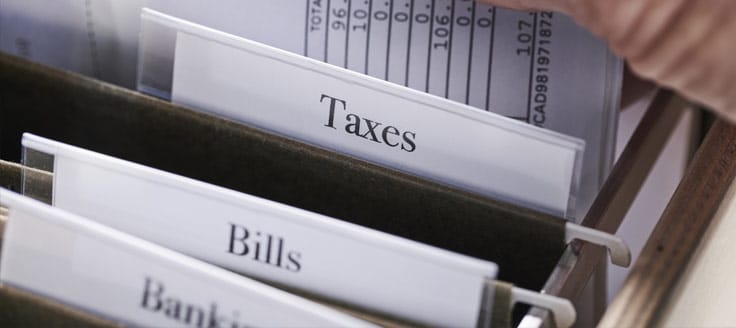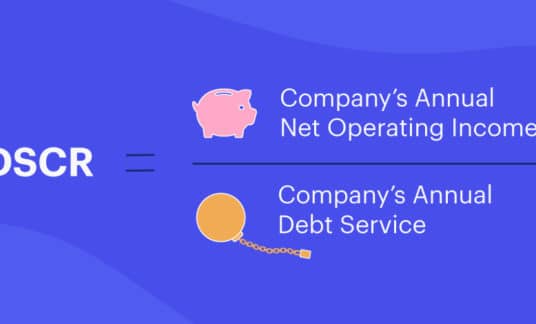Small business owners can benefit from tax deductions to reduce taxable income. Luckily this includes business interest deduction, namely the ability to deduct interest from a business loan.
Often, a small business will take on loans or other expenses in an effort to increase income. While business loans themselves can’t be deducted, the interest from these loans is tax deductible.
Indeed, there are limitations and restrictions as to how these deductions can be applied depending on how business loans are used.
What Are Business Loan Interest Deductions?
As a small business owner, you can qualify for a deduction on business loan interest by filing a claim in the corresponding tax year that any interest accrued and was subsequently been paid for.
When filing federal or state tax returns, businesses can claim tax deductible interest on loans—including interest on mortgages (up to two properties if you own rather than lease) and business loans and business credit cards—to reduce taxable income. Non-business related debt interest, such as for an auto loan or personal credit card, can’t be deducted from your company’s taxable income.
-
What About Interest Deductions for Home Businesses?
For a home business, the portion of home mortgage interest (plus other home-related expenses) that corresponds to your business use can be deducted as a business expense.
Capitalized interest—that is, interest added to the principal balance of a loan or mortgage—may not be deducted. This interest expense must be depreciated along with the other costs of the business asset.
How to Qualify for Business Interest Deductions
Before deducting any business loan interest, the Internal Revenue Service (IRS) sets a few stipulations your financing must meet.
Are the Funds Used for Business Purposes?
Spending funds that you’ve been loaned is important. If funds are still in your bank account, any interest you have paid on them is not tax deductible. Your business had a reason for securing a business loan, and the funds can’t help your business if they remain idle. Any funds that sit in your account are viewed as an investment by the IRS and therefore not eligible for a deduction.
Are You Legally Liable for the Debt?
As long as you’re liable for the debt, you’re able to deduct any interest you have accrued and paid during the fiscal year. If you’re only liable for a portion of a debt, you may only deduct the interest you’re responsible for.
To qualify for a business loan interest tax deduction, the paperwork you have on file for a loan needs to be in your name and reflective of the terms you’re reporting. For example, it’s common for a UCC-1 statement to be submitted with your tax return.
Is the Debt Expected to Be Paid Back?
For business loan interest to be tax deductible, the debtor and lender must both expect the debt to be paid back. This means you have been making regular payments and that your lender has been depositing them.
Is There a True Debtor-Creditor Relationship?
While this may seem straightforward, the IRS wants proof that the relationship between you and your lender is legitimate and not, for example, a handshake agreement between two individuals with one party providing a monetary favor for the other.
Business Interest Expense Limitations
In certain cases, the IRS does set limitations on the deduction for business interest expenses.
Before the Tax Cuts and Jobs Act (TCJA) passed in 2017, the majority of business-related interest expenses were deductible. Beginning in fiscal year 2018, the reconstructed Code Section 163(j) placed limits on the amount of deductible business interest expense and prohibited business organizations from writing off interest paid on investments.
However, TCJA business interest deduction limitations don’t apply to small businesses, as well as other select trades and businesses. The IRS defines a small business as having average annual gross receipts of $25 million or less in the previous three years. As of tax year 2019, the $25 million threshold will be adjusted for inflation.
When Section 163(j) does apply, permissible deductions for a fiscal year are commonly limited to the total of:
- Business interest income
- 30% of the adjusted taxable income of the taxpayer
- And floor-plan financing interest (used to purchase big-ticket items such as vehicles and boats used for display purposes)
-
What Is Adjusted Taxable Income?
Adjusted taxable income (ATI) is the amount of income you’re taxed on after allowable deductions are subtracted from your gross income. ATI may also be referred to as adjusted gross income (AGI).
If these requirements are met, excess business interest can be carried forward and treated as “business interest paid or accrued” in the following tax year. Currently, there is no language in Section 163(j) preventing business owners from carrying future amounts forward indefinitely.
How Business Loans Affect Tax Deductions
Regardless of the type of small business loan you may have, the interest that is accrued against it can be deducted. How your business uses its funding may impact your interest deduction eligibility.
Whenever you are deciding to secure small business funding, be sure to ask both your lender and your certified public accountant (CPA) if the terms you’ve been offered can be claimed as a business loan interest deduction. Doing this early in the loan process will help to determine if the terms are right for you and your business plans.
To get a better understanding of how your small business loan might alter any potential deductions, let’s review how four common loan types treat tax deductions.
Term Loans
Interest rates on term loans are calculated on the remaining loan principal. You can deduct the interest you paid during that fiscal tax year, and you can continue to do so until your loan reaches maturity.
Short-Term Loans
Depending on the terms of your loan, qualifications and the preference of your lender, short-term loan interest can be calculated through a standard annual percentage rate (APR) or a factor rate. With the shorter payoff window, it’s likely that your deductions will be contained between one or two tax filings.
Business Lines of Credit
Since interest is paid only against the funds you withdraw through a business line of credit, the size of your interest deduction depends solely on what you use. Because of its variable nature, be sure to double-check your statements before filing your taxes to make sure you’re working with up to date information.
Business Acquisition Loans
If you’ve used a loan to acquire a business, it’s possible that you’ll be able to deduct a portion, if not all, of the loan’s interest.
Deduction eligibility, in this case, comes down to your intentions for the business. If you’re purchasing the business with the intention of actively running it, you should be able to write off your interest. However, if you don’t plan on taking an active role in the business, the IRS will see this acquisition as an investment and will, therefore, restrict any deductible interest options you may have.
Investment expenses are interpreted differently by the IRS. From their standpoint, funds that have been invested into a business you’re inactive in typically would be generating money for you. Therefore, the interest on the loan you’ve secured to purchase the business would not be viewed as a business expense. If you find yourself faced with these decisions, we recommend consulting with your CPA.
How to File a Loan Tax Deduction
Now that you know what is and isn’t eligible for a loan tax deduction, you’re ready to include these itemizations in your tax filings. How you claim these deductions depends on how you’ve structured your business.
Here is a quick breakdown on how each business organization needs to file their business loan interest deductions:
- Sole Proprietors and Single-Member LLCs: Show these expenses in the “Expenses” Section of Schedule C on Line 16b.
- Partnerships and Multiple-member LLCs: Show these expenses in the “Other Deductions” Section of Form 1065.
- Corporations: Show interest expense tax deductibles for a corporation in the “Other Deductions” Section of Form 1120.
How to Make an Accurate Interest Tax Deduction Claim
Claiming the correct amount of interest you’ve paid (or will pay) on your tax return is a basic element of tax deduction claims. Compare your most recent statements from your lender with your year-end tax statement to check how much interest you paid for the year.
If you’d like to confirm what you see on your statements with your own calculations, there are plenty of online tools you can leverage to calculate your yearly interest burden.
Here is an example: Your lender charges you 9% interest on a $75,000 business loan with a 4-year term. The loan origination date is Jan. 1. Throughout the loan, you will be able to itemize the following interest loan deductions:
Year 1: $6,088.17
Year 2: $4,558.33
Year 3: $2,884.98
Year 4: $1,054.67

Other Small Business Tax Deductions
Business loan interest deductions aren’t the only way to reduce the taxable income of your small business.
If you’re filing small business taxes for the first time, you may be able to deduct startup costs. Using small business tax strategies, such as investing in tax-deferred retirement plans or prepaying expenses, can further reduce your tax burden.











